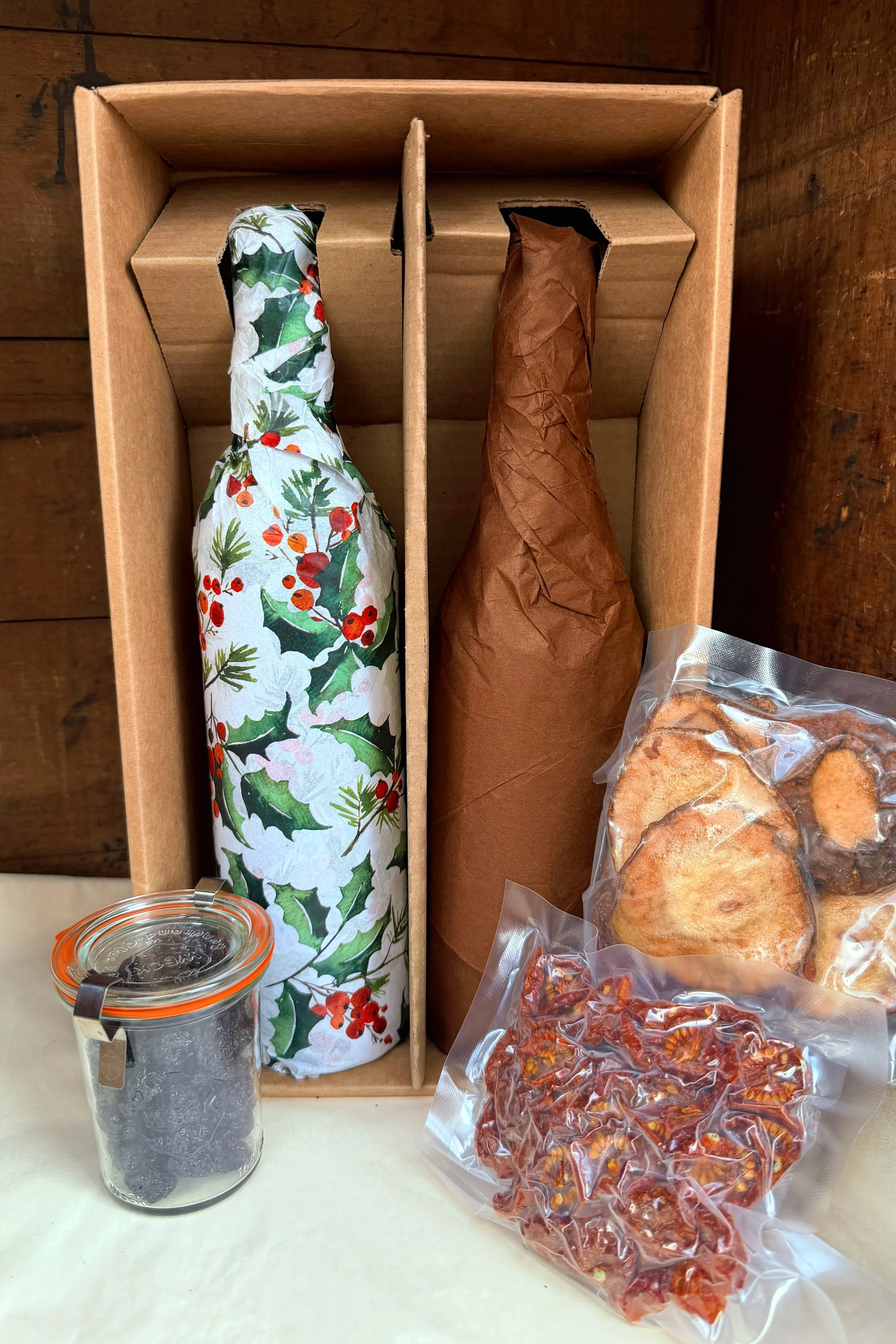Winter at Idiot’s Grace
Much of our spring, summer, and fall is spent busily pruning, planting, tending, and harvesting. It is only with the arrival of this colder season that the pace slows down, and allows us to turn our attention to the focused enjoyment of life. This transition is a moment we like to share with you in the form of great food, great wine, and the celebration of this quieter but more indulgent season. Over the remaining weeks of the year, we invite you to join us for a few special events and enjoy the winter at Idiot’s Grace: the details are below.
11/29 & 11/30: A Tasting of Special Occasion Cheeses
Many of our events start with our own culinary fantasies. On the weekend after Thanksgiving, we’ll honor one of those fantasies by serving a number of fine, rather special cheeses from all over the world, sourced from Cowbell Cheesemonger in Portland. To open cheeses like these ones, which you won’t otherwise find in the Gorge, requires a special occasion, so we’ll also be pouring the 2023 Muscat, a dessert wine, for the first time. We invite you to join us for the special tasting course and pouring from 1:00 to 4:00 on Saturday and Sunday, November 29th and 30th.
12/7: Wreath Workshop
Every year Caitlin spends a few days with her dogs and (we imagine) some kind giant sled in the forests above Parkdale, foraging for wreath supplies. Then she hauls them to the winery for a wreathmaking workshop. This year we’ll hold two sessions, one at 10:00 AM and one at 1:00 PM on Sunday, December 7th. Everyone will walk away with a wreath; $50 covers the cost of materials, instruction, and a glass of wine to sip as you work. Please let us know if you plan to attend by emailing Anne and Caitlin at: tastingroom@idiotsgrace.com.
12/14: Holiday Market
We try as often as we can to engage the community of craftspeople in this area, sometimes through workshops, and once each year with a holiday market. Please join us on Sunday, December 14th for this year’s market, featuring a number of local artisans we are proud to welcome into the tasting room. We will also stock the shelves with the organic cherries and pears we've dried this season.
12/21: Holiday Open House
With wreathmaking over, the shopping done, and everything here prepared for our two week winter break, we will celebrate the end of another year with family and friends, music, Christmas cookies, and mulled wine, and we invite you to celebrate with us, on Sunday December 21st.
Idiot's Grace Gift Boxes
I know not all of you will be able to join us for these events, and I don’t like the idea of an email going to waste. So for the rest of you, let me offer some gift-giving advice. I really don’t think there’s a better gift than good food about which you know the origin and the story. We spent a lot of time this season preserving not just grapes, but also the other fruit we grow, from cherries to pears to medlars to saskatoons. We’ve put together a gift box that preserves several seasons on the farm, in the form of wine and dried fruit— an opportunity for you to share Mosier with your family and friends. The box includes two bottles of wine, dried cherries, dried pears, and dried tomatoes, all grown and preserved here. The shipping for these gift boxes is complimentary, and the details can be found on our website, here.



